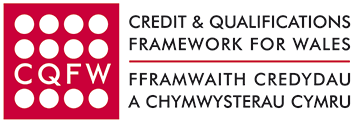Support individuals to maintain personal hygiene
- Unit ID:
- CCY281
- Unit Code:
- PT12CY057
- Level:
- Two
- Credit Value:
- 2
- Sector:
- 1.3
- LDCS:
- PT1
- GLH:
- 17
- Last registration date:
- 31/08/2019
- Lower age restriction:
- 16

Purpose and Aim
This unit is aimed at those working in a wide range of settings. It provides the learner with the knowledge and skills required to support an individual in maintaining personal hygiene. It covers good personal hygiene routines and why these are important, as well as potential contributory factors to poor personal hygiene.
Learning OutcomesThe learner will
|
Assessment CriteriaThe learner can
|
||||||||||||||||||
|---|---|---|---|---|---|---|---|---|---|---|---|---|---|---|---|---|---|---|---|
|
|
||||||||||||||||||
|
|
||||||||||||||||||
|
|
Assessment Methods:
Assessment Information:
There is no specific assessment information to be used with this unit.
If not specifically stated in the assessment information, a plural statement in any assessment criterion means a minimum of two.
Other Mappings:
NOS ref: HSC 27, 29, 218, 219, 220
Assessor Requirements:
This unit must be assessed in accordance with Skills for Care and Development's QCF Assessment Principles.
Learning outcome 2 must be assessed in a real work environment.
Additional information:
An individual is someone requiring care or support
Factors may include:
Washing
Showering/bathing
Washing hair
Cleaning clothes
Keeping nails clean
Washing hands after using the toilet
Preferences and needs will include any particular requirements around personal hygiene determined by an individual’s culture/faith/belief/religion
Maintaining dignity includes
privacy
having trust on both sides
being professional
awareness of abuse
averting eye contact to avoid embarrassment
being gentle
being able to empathise
Risks – from infection and reduction through infection control techniques
Others may include
The individual
Colleagues
Families or carers
Friends
Other professionals
Members of the public
Advocates
Underlying personal issues may include
financial issues
abuse
health issues